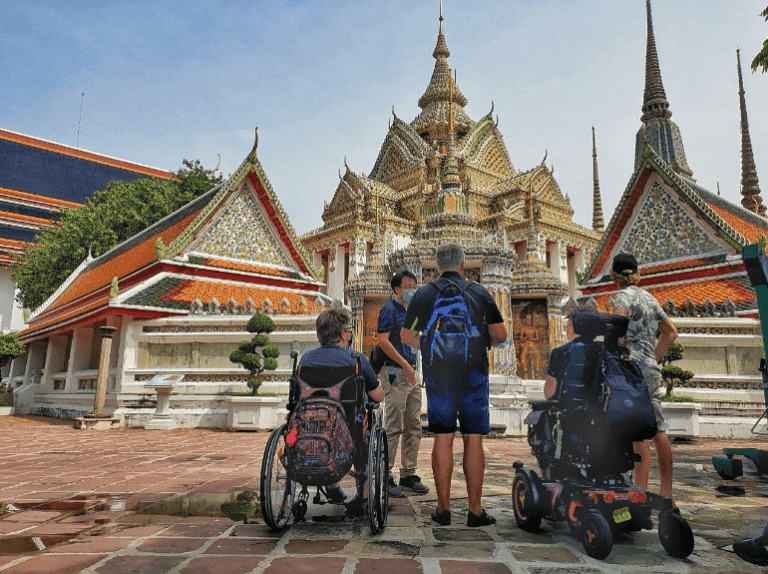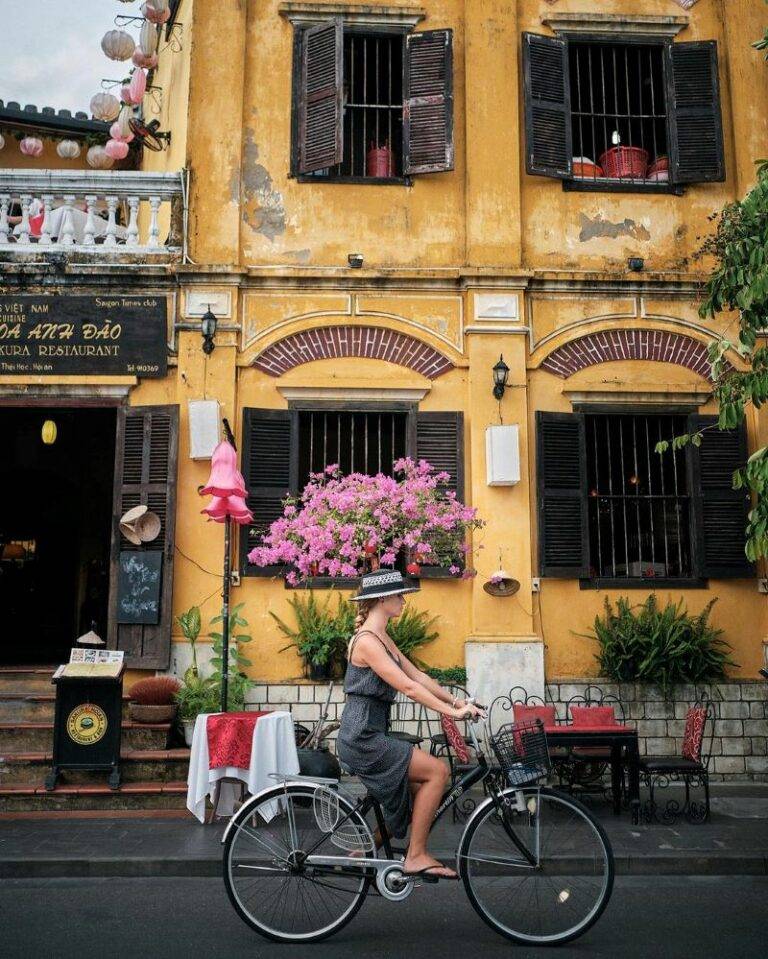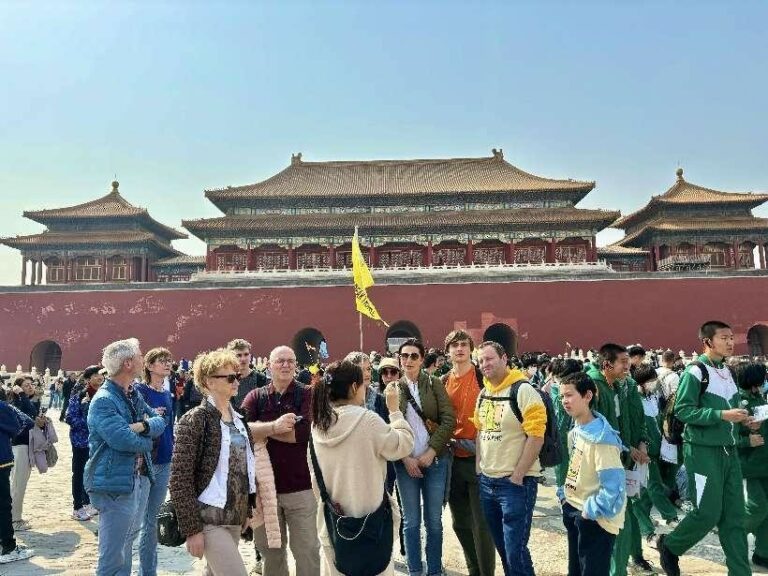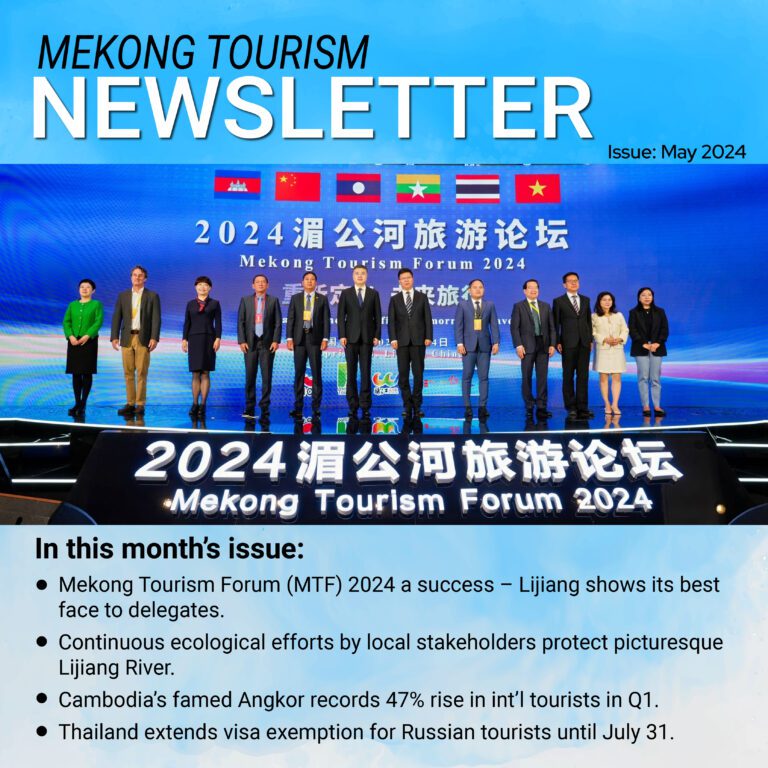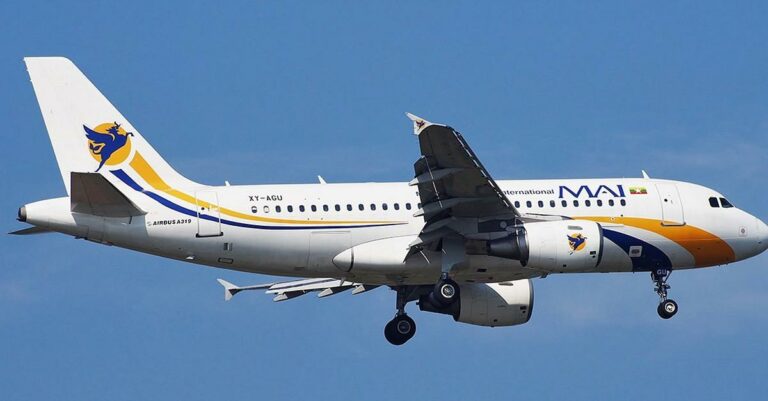
With the resurgence of tourism in the Greater Mekong Sub-Region (GMS), there is an increased focus on enhancing child protection measures in the context of travel and tourism.
“The Mekong region encompasses six countries where the extent to which children’s right to live in a safe and protective environment varies,” explains Gabriela Kühn, ECPAT International’s Head of Programme, Child Protection in Travel and Tourism. “Violence, exploitation, and abuse can happen at home and elsewhere, including in online and travel and tourism contexts.”
For ECPAT International, a global organization focused on ending the prostitution and trafficking of children, working with the tourism sector is a critical part of pursuing their mission. Gabriela is ECPAT’s point person for the travel industry – she coordinates with government agencies, private businesses, and civil society groups, providing support and expertise that helps them develop sustainable strategies with child protection at the core.
We talked with Gabriela about the link between SEC and tourism in the Mekong – and how only a multisectoral approach can make a significant difference in the defense of children’s welfare in the region.
The answers were edited for clarity and brevity.

Can you elaborate on the evolving challenges and strategies for child protection in the Mekong region, particularly in the context of the tourism sector’s recovery post-COVID?
Post-COVID, many Mekong destinations are now reaching pre-pandemic arrival levels. New forms of travel and tourism are emerging as travel recovers; the increasing online dimension of travel and tourism enables direct and unregulated access to children in local and more remote communities.
Child protection in the travel and tourism context needs to be understood considering this evolving context. This includes protecting children on the move, considering the impact of climate change, as well as the impact of armed conflict and emergencies that increase children’s risk of sexual exploitation, especially when they have no access to birth registration or proper documentation.
Therefore, there is a need for coordinated strategies in the Mekong region to protect children as an integral component of the sustainability agenda.

In the recent years, have there been any notable improvements or changes in addressing and combating child sex tourism in the GMS countries?
Efforts to combat child sexual exploitation in travel and tourism have been intensifying since 2016, with notable progress in several GMS countries.
In Cambodia, significant strides have been made, though continuous efforts are essential. The government has established a robust legal framework, and ongoing initiatives aim to strengthen its implementation.
Laos has been actively working to close gaps in its national legal framework to better protect children from exploitation.
Viet Nam has shown commendable progress, particularly with initiatives like the Multi-agency and Interdisciplinary Network for Child Protection in the Online Environment and the National Programme on Child Online Protection.
How is ECPAT working with national governments to develop systems to monitor and enforce child protection laws effectively in the Mekong region?
ECPAT International provided technical support to the development of the Regional Plan of Action for Protection of Children from All Forms of Online Exploitation and Abuse in ASEAN (2021-2025).
ECPAT also engaged with ASEAN Members of Parliament that endorsed the legal framework guidance to protect the region’s children from traveling child sex offenders. ASEAN Inter-Parliamentary Assembly (AIPA) lawmakers agreed to a 24-point legal checklist, a roadmap to guide the improvement of legal and policy interventions to protect children, as gaps in the frameworks hinder prevention of sexual exploitation of children in travel and tourism.
ECPAT also engages with the private sector. For example, in Thailand, the Child Safe & Friendly Tourism initiative led by the Committee for the Prevention and Suppression of Human Trafficking, the Ministry of Tourism and other partners, is based on a cross-sectoral approach and includes the knowledge and experiences from The Code for the protection of children in the travel and tourism context.
What are the legal blind spots or loopholes that currently prevent the proper protection of children from trafficking and exploitation in the Greater Mekong Sub-Region?
Based on the legal checklist endorsed by ASEAN Inter-Parliamentary Assembly (AIPA), ECPAT developed a Summary of Recommendations for key legal and policy interventions needed in Southeast Asia.
Its comparative analysis of the legal frameworks of Cambodia, Laos, Myanmar, Thailand, and Vietnam indicated that, as of 2022, none of the countries established obligatory government-regulated child protection standards for the tourism industry.
These countries have not criminalized the grooming of children, including via the use of digital technologies. While Thailand has developed draft legislation, all countries in the region should review their legal frameworks and policies to enforce child protection measures.
However, progress has been made. For example, the above-mentioned Child Safe & Friendly Tourism initiative in Thailand is a promising example: it focuses on awareness raising, social responsibility, and supporting the business sector in creating a safe environment for children, and developing tourism standards to protect children from sexual exploitation and trafficking.

Could you share examples of successful interventions or programs that ECPAT has implemented or joined within the Mekong Region?
An example of a successful initiative is the cooperation of ECPAT International with Destination Mekong, which promotes and mainstreams child protection among the private sector, its members and partners.
Acting upon the global call for robust child protection structures in travel and tourism, partners from the Mekong Region at the Destination Mekong Summit in Phnom Penh, Cambodia agreed on collaborative strategies to protect children and vulnerable communities.
Other cooperative initiatives in the region included the launch of the voluntourism policy that calls upon businesses to rethink and redesign the packages offered to travelers and tourists, and to protect children.
Governments should act to regulate industry in their respective countries, to ensure that voluntourism does not facilitate the sexual exploitation of children. This needs to be done in cooperation with the sending countries for voluntourists, such as the Netherlands, Ireland or Germany, where promising practices have been documented to regulate this issue through awareness raising, along with an introduction of a mix of legislative and policy regulations across relevant sectors.
Looking forward, what do you see as the biggest challenges and priorities for improving child safety in the Greater Mekong Sub-Region? How can individuals, communities, and governments better collaborate to address these issues?
The sheer size of the sexual exploitation of children is on the increase, and while travel and tourism trends are shifting, the industry must renew its commitment to remain fit for purpose in this fight. The industry needs to rethink what it means to be truly sustainable – and incorporate child protection measures.
The widespread use of technology and the global and local developments of travel and tourism expose children to the risk of sexual exploitation. As tourism is bouncing back rapidly in the Greater Mekong Sub-Region, there is an urgent need to create and ensure safe environments for children in all contexts – including travel, transport, and voluntourism, considering also the impacts of technology.
ECPAT International recently established cooperation with the Mekong Tourism Cooperation Office (MTCO), allowing for further engagement with the public sector and tourism authorities to step up child protection measures in the region.
The Greater Mekong Sub-Region is at the forefront of developing and implementing comprehensive child protection strategies. This commitment to sustainability and community empowerment is pivotal in creating safer environments for children in all aspects of society, including travel and tourism.
For more on ECPAT’s essential work around the world, visit their websites: www.ecpat.org and www.ecpat.org/sectt.

